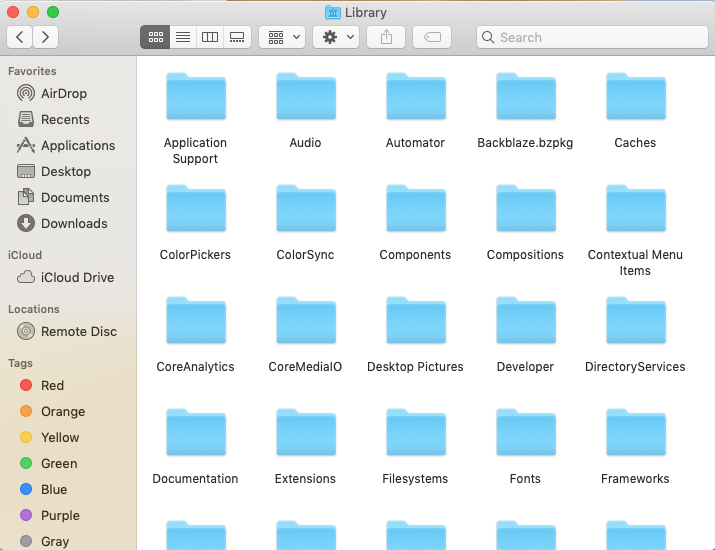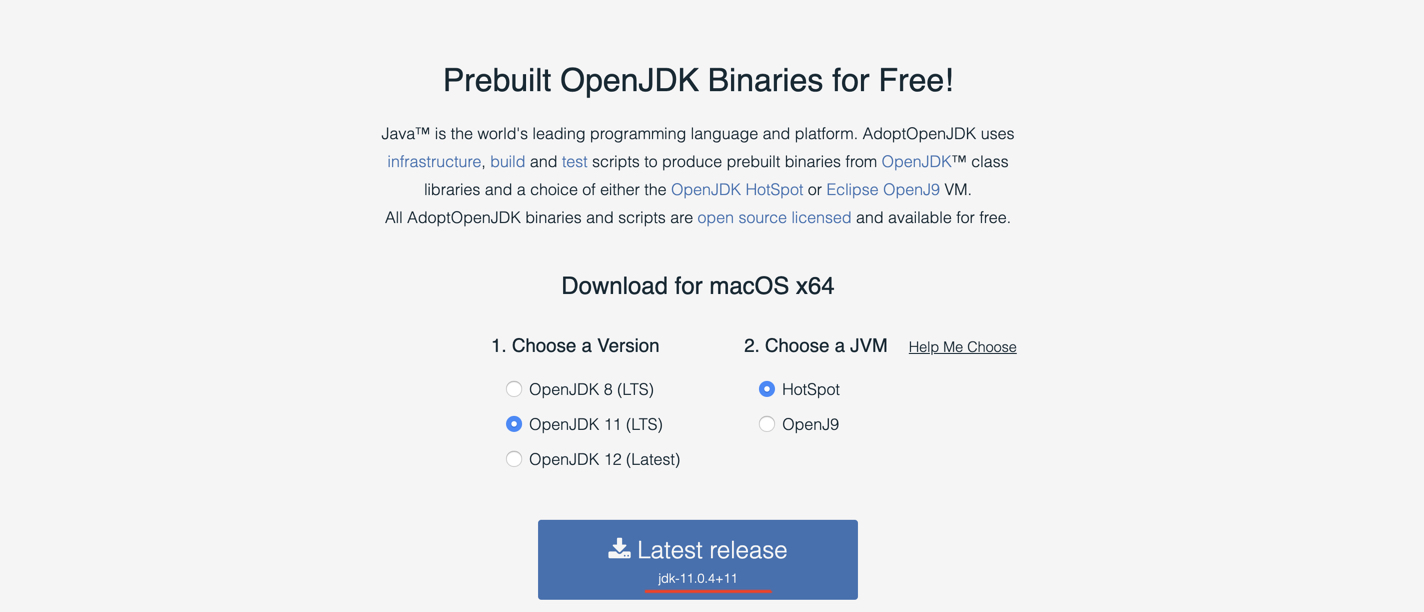Note: These solutions work for various versions of Java including Java 8, Java 11, and the new Java 15, and for any other previous Java version covered by the listed version managers. This includes alternative JDK's from OpenJDK, Oracle, IBM, Azul, Amazon Correto, Graal and more. Easily work with Java 7, Java 8, Java 9, Java 10, Java 11, Java 12, Java 13, Java 14, and Java 15! Java SE Development Kit 11 Downloads. Thank you for downloading this release of the Java™ Platform, Standard Edition Development Kit (JDK™). The JDK is a development environment for building applications, and components using the Java programming language.
Take a look at how you can quickly get started with OpenJDK with this tutorial that gives you commands for installing version 7-11 through a Mac Terminal.

Openjdk 11 Download Mac Os 10.12
Join the DZone community and get the full member experience.
Join For FreeIn this article, I will be using Homebrewto install OpenJDK versions on the Mac.
We use brew install to install JDK versions 8,9,10, andbrew cask installfor version 11 and above.
All the brew commands are executed in the Terminal window on the Mac.
Install OpenJDK Versions 8, 9, and 10
brew tap AdoptOpenJDK/openjdk

brew search /adoptopenjdk/
The Formulae section contains the identifiers for the various JDK versions.

To install a specific JDK version: brew install <identifier>
e.g. to install OpenJDK 8: brew install adoptopenjdk/openjdk/adoptopenjdk-openjdk8
JAVA_HOME should be set by the developer to /usr/local/Cellar/adoptopenjdk-openjdk8/jdk8u172-b11.
Install OpenJDK Version 11
brew cask install adoptopenjdk
JAVA_HOME should be set by the developer to /Library/Java/JavaVirtualMachines/adoptopenjdk-11.jdk.
Opinions expressed by DZone contributors are their own.
Need help installing OpenJDK 11 on MacOS? Click here to learn how in this simple, easy-to-follow tutorial with sample code!
Join the DZone community and get the full member experience.
Join For FreeIf you download the .tar.gz for OpenJDK 11 directly from http://jdk.java.net/11/, there’s no obvious installation instructions (at least that I could find) on the OpenJDK website or in the .gz file. If you’ve done any fiddling with different JDK versions on MacOS before, you’ve probably come across the ‘/usr/libexec/java_home’ utility, which composes a number of useful things relating to the JDK that you’re currently using in your PATH. Click here for my previous article about this utility and answers to this StackOverflow post, which includes one of the most extensive and useful guides to running different JDK versions on MacOS that I’ve seen.
/usr/libexec/java_home: This will show you where the current JDK home is, for example:
/usr/libexec/java_home -V: This lists all installed JDKs, which is shown below:
To switch between JDKs, use /usr/libexec/java_home -v version (e.g. 10):
Openjdk For Mac
Knowing that your available JDKs are installed to /Library/Java/JavaVirtualMachines/ by default, moving the contents of the downloaded OpenJDK 11 dir from inside the .gz file to the same location would make sense.
Once you’ve moved it there, java_home -V now shows the new JDK in place:
Updating my aliases to quickly switch versions in my .bash_profile, I now have:
Sourcing the .bash_profile (source .bash_profile) and then running each alias, now I’ve got OpenJDK 11 set up and ready to go!
Published at DZone with permission of Kevin Hooke, DZone MVB. See the original article here.
Opinions expressed by DZone contributors are their own.